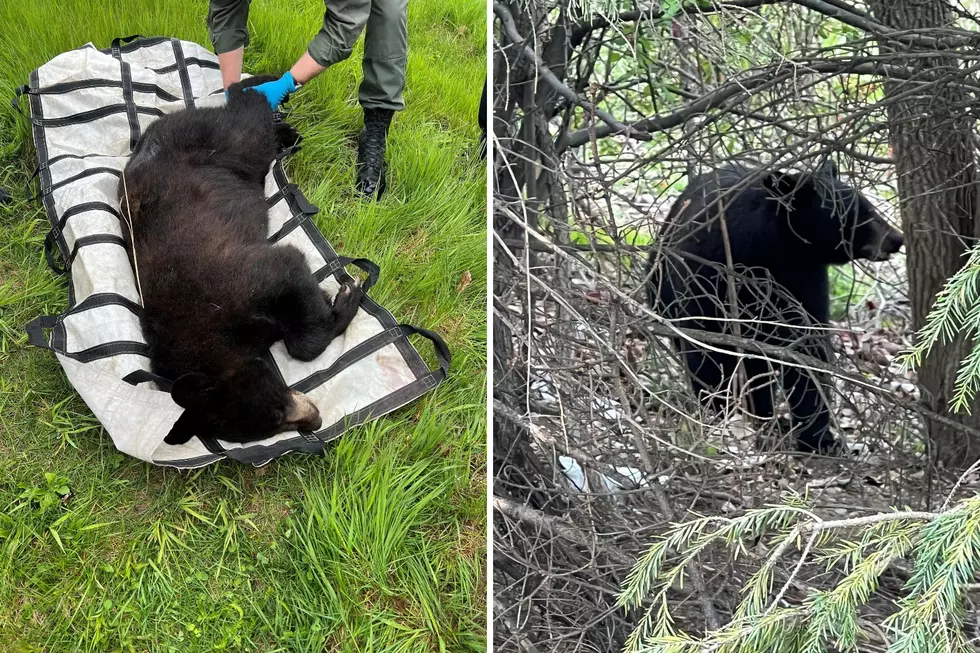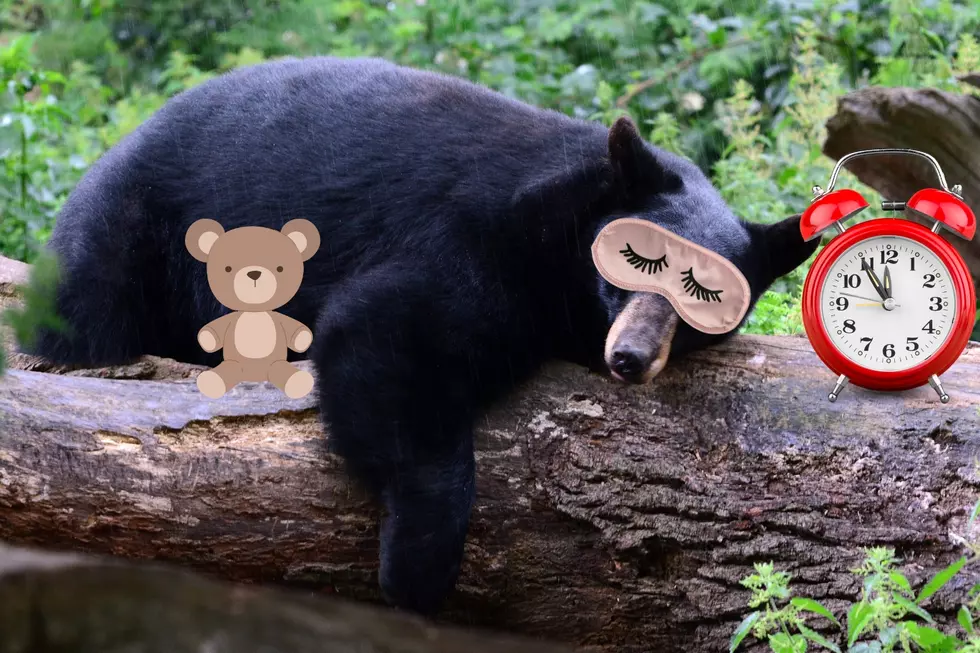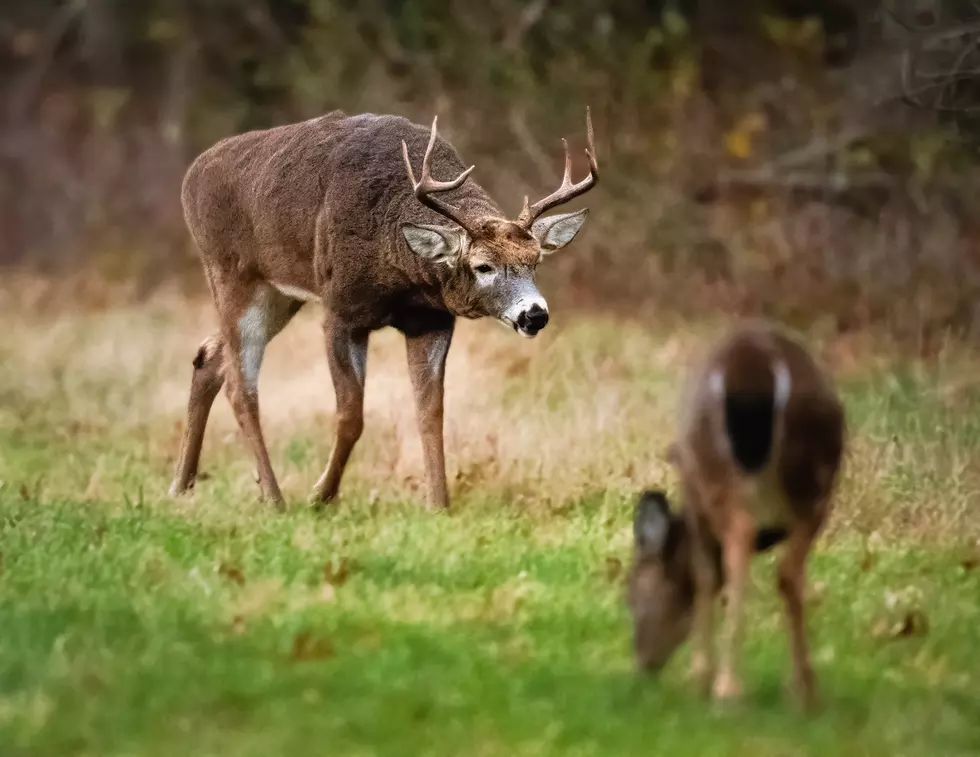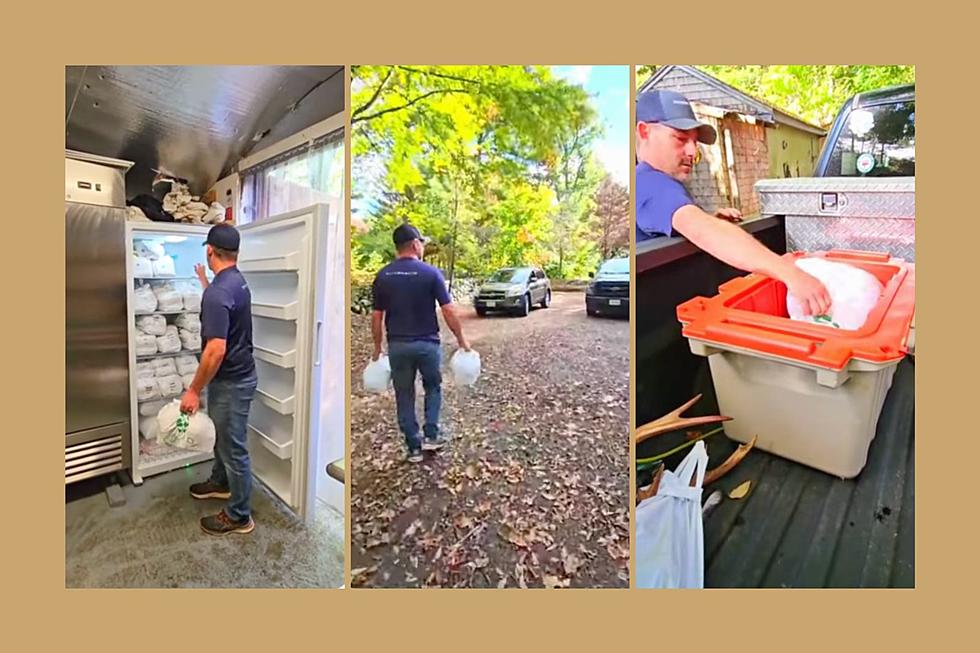
MassWildlife Confirms Death of Bald Eagle Caused by Poison
If you are trying to take care of a pesky rodent problem, think twice before resorting to poison, because you may be killing a lot more than just the rodents.
MassWildlife confirmed a bald eagle was the victim of second-generation anticoagulant rodenticide poisoning, the first case of its kind in Massachusetts.
MassWildlife is urging people to do their research when it comes to dealing with a rodent problem in order to minimize harm to wildlife.
On Friday, MassWildlife shared that observers reported odd behavior from an adult female eagle back in March, and within a day, the bird had died on its nest. The bird was transported to Tufts Wildlife Clinic at Cummings Veterinary Medical Center at Tufts University, where a necropsy and toxicology test of the liver confirmed lethal levels of anticoagulant rodenticides.
“Anticoagulant rodenticides are a type of rodent poison that kills by preventing blood from clotting normally, resulting in a fatal hemorrhage,” MassWildlife explained. “Wildlife can be poisoned in two ways: 1) primary poisoning when an animal directly eats the bait and dies several days later, or 2) secondary poisoning when a predator or scavenger eats pretty that has consumed the bait.”

Personally, this sounds like a cruel way of taking care of a rodent problem. It’s a long and drawn-out way to die, and when there are other options, why not take them?
MassWildlife teamed up with Tufts Wildlife Clinic to provide the following advice for homeowners that are dealing with a rodent issue:
- Rodent-proof your home. Before using a poison, remove or securely contain any potential food sources for rodents. Repair any exterior areas of your home to prevent rodents from coming inside.
- Arm yourself with information. Consider alternatives to poison, such as snap traps. Poisons should be used as a last resort. Be sure to check the active ingredients and opt for products that contain bromethalin, chlorophacinone, or diphacinone. Use poisons only in bait stations as per the label instructions and avoid any in pellet form.
- Ask your pest control company questions. Look for an integrated pest management company that uses multiple approaches to pest control instead of relying solely on poisons. You can request that the company avoid using SGAR products including brodifacoum, bromadiolone, difenacoum, or difethialone.
It’s saddening to see a beautiful bird like the bald eagle become a second-hand victim to a rather barbaric solution to ridding a home of rodents. Why is this stuff even legal? I grew up with outdoor cats and the chances of them eating a mouse were high. If they died of secondary poisoning, I would be devastated.
Educate yourself before reaching for poison. To learn more, click here.
KEEP READING: Here are 6 foods from your cookout that could harm your dog
More From WFHN-FM/FUN 107






![Fun Morning Show Attempts the Mariah Carey ‘High Note Vocal Run’ Challenge [VIDEO]](http://townsquare.media/site/519/files/2023/12/attachment-mc.jpg?w=980&q=75)


